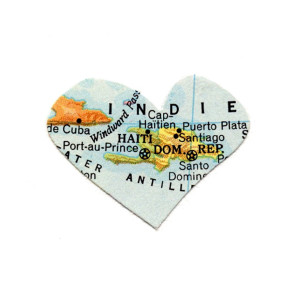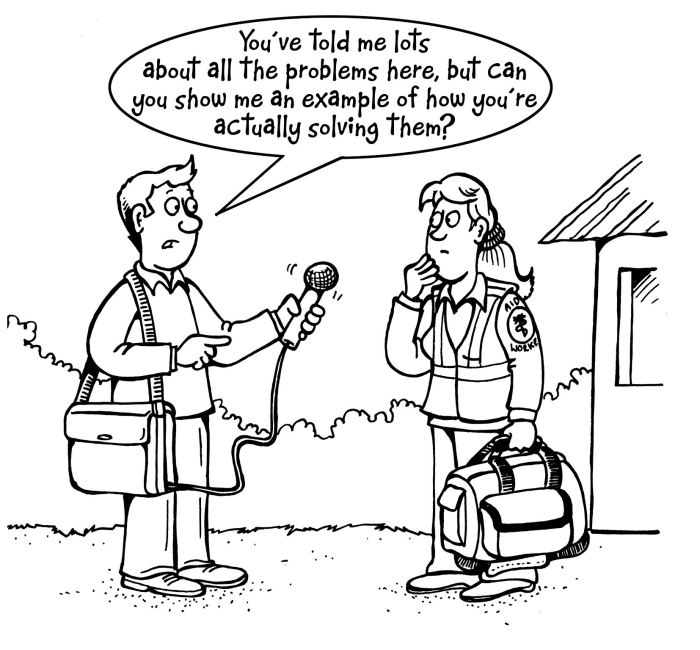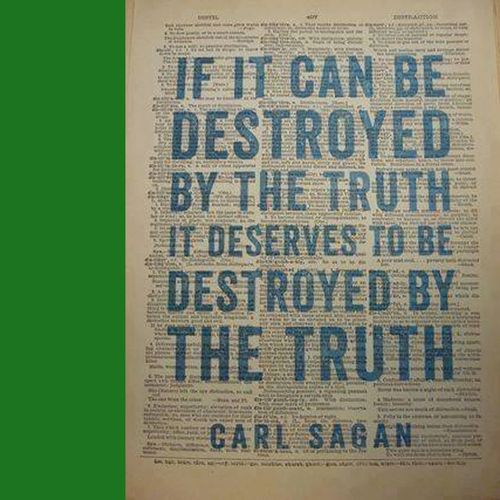A related version also appears on IDEX’s blog.
During my stint at the American Red Cross, I met many hard-working, smart, committed, and kind people – people whom I have now seen malign the “inflammatory” and “overly negative” ProPublica/NPR piece about the American Red Cross’ work in Haiti via social media.
Are these people right to defend the agency’s work? I did not work on Haiti while I was there, so I can neither confirm nor deny the allegations against the American Red Cross or their rebuttal claims. (Though I do recall the term “sh&% show” was a fairly common reference used by staff in reference to the specific program investigated by the reporters.)
 What I do know is that my former colleagues’ reactions to the news coverage (of Haiti and of Hurricane Sandy both) were swift; they were quick to defend the agencies’ achievements. I understand the agency’s need to respond in this way, but why individuals feel they must is a question for me.
What I do know is that my former colleagues’ reactions to the news coverage (of Haiti and of Hurricane Sandy both) were swift; they were quick to defend the agencies’ achievements. I understand the agency’s need to respond in this way, but why individuals feel they must is a question for me.
It’s not the paycheck, entirely. I’ve seen people who are no longer there defending the agency. (Or put another way, “don’t you talk about my…that way…“) But I think their loyalty is related to something that too often trumps logic and reason – good intentions and the fact that our identities are often tied to our work and to the values and principles of our organizations.
Yes, there are two sides to every story. Yes, the situation in Haiti is “complex.” Yes, perhaps expectations for the Red Cross are too high. Yes, the reporting itself was a collection of verifiable facts and opinions, which fell short of providing a well-woven explanation of events and outcomes (an opinion that I share).
But that is not the point.
Because we work inside an often willfully blind sector, we have to accept the burden of balancing our points of view. We know that donor-recipient power structures have plagued aid effectiveness for much too long. We know that accountability for philanthropy and international aid is considered a “black box” because accountability to poor people—rather than our financiers—has rarely been at the center of our endless “what works?” conversations. And now, we know there is mounting pressure as civil society is also losing the public’s trust. How will we ever be able to overcome these shortcomings if we can’t admit to them?
When mistakes are uncovered and released into the public domain, we have a choice. We can either dismiss our critics outright for “not telling the full story,” or we can engage the deeper questions about why it is so hard to do this work well, and share our lived experiences.
Sure, share the listsicle that the communications department produced on your Facebook page, but I encourage my fellow aid workers to do so in a way that acknowledges that donors (and more importantly, people on the receiving end of aid) have a right to know how money is being used and to what end.

Like it or not, investigative journalism is an important mechanism of accountability for large institutions and non-profits who don’t have a “constituency” nor “shareholders.” As a quasi-governmental organization, the American Red Cross needs to accept this and submit itself to this kind of scrutiny. Institutions are slow to change by their very nature. Most times the incentives must come from the outside, and in the future, resilient institutions must be able to welcome and withstand criticism.
Aid workers try to do their job and journalists theirs too. Is either ever going to be completely objective? Probably not.
I’m happy there are great organizations responding to disasters, and even happier that there are a growing number of alternatives for giving locally to disaster response and recovery – to get money directly to those who are trusted locally.
“Doing something with the money” in the wake of tragedy never justifies wasted efforts or resources.
And I guess that’s what I had wanted to hear from my former colleagues most of all.
***
A former colleague responded to this post. Click here for her thoughts on how TO respond to bad press.
***
Related Posts
Demonstrated: The demand for new narratives in international development communications
Accountability to whom? Keep asking.
Time to Listen? Time to address our organizational barriers


Here was Sean Penn’s take: http://www.huffingtonpost.com/sean-penn/haiti-red-cross_b_7548084.html
“…life and aid remain an exploration. Like in all aspects of life, transparency itself becomes a balance of perception and survival. Identity and agenda. Strategy and will. Yet whenever those things are reliant on dollars and cents, media embrace or oversight, the checks and balances are in the hands of such a varied assortment of personal, institutional, and societal narrow-mindedness, that we rely more than with our own hearts and minds on what has become, on what is, the perception most trending. How can we defy that? How can we rise up?”
Huh?
Pingback: Saturday Morning Reading #48 | A Pett Project